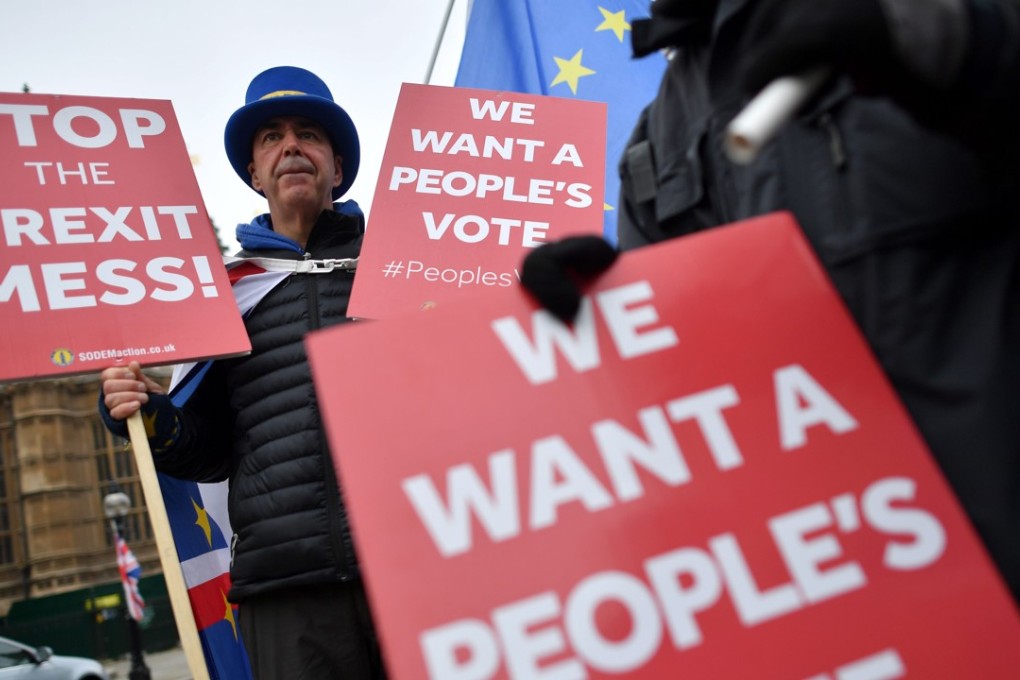Hopes for second Brexit referendum reach fever pitch, but is it too late?
- Prime Minister Theresa May is struggling to convince British lawmakers to back her Brexit deal
- There are significant structural barriers to a second vote, analysts say

Hopes for a second referendum on EU membership are rising in Britain amid heightened uncertainty over Brexit, but big hurdles remain – from the timing to legal complexities on both sides of the Channel.
Prime Minister Theresa May is struggling to convince British lawmakers to back her Brexit deal -formally signed off by EU leaders last weekend – in a key vote in parliament on December 11.
If, as widely expected, it is voted down, what happens next remains highly uncertain. But the backers of a so-called “People’s Vote” argue it opens up an opportunity to ask Britons to think again.
“There is a growing momentum behind the campaign for a second referendum,” said Constantine Fraser, an analyst research consultancy TS Lombard.
“It will become a serious option on the table if, or more likely when, Theresa May’s deal is voted down.
“I wouldn’t say it’s a probability, but it’s a likelihood that’s growing fast.”